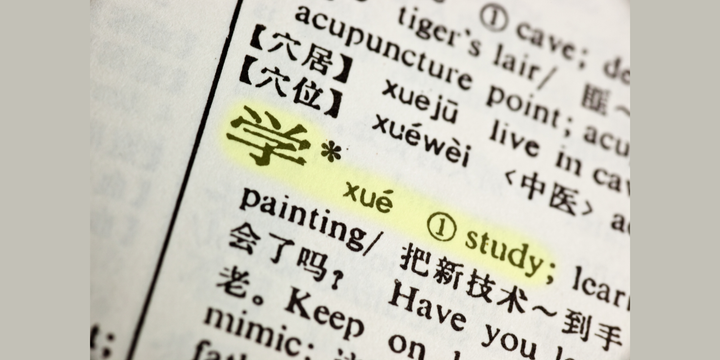Filmmaker, farmer, global peace-advocate: Bill Youren
Bill Youren, an extraordinary yet little known New Zealander, built bridges between New Zealand and China. Decades later, academics have helped to bring his story to the silver screen.
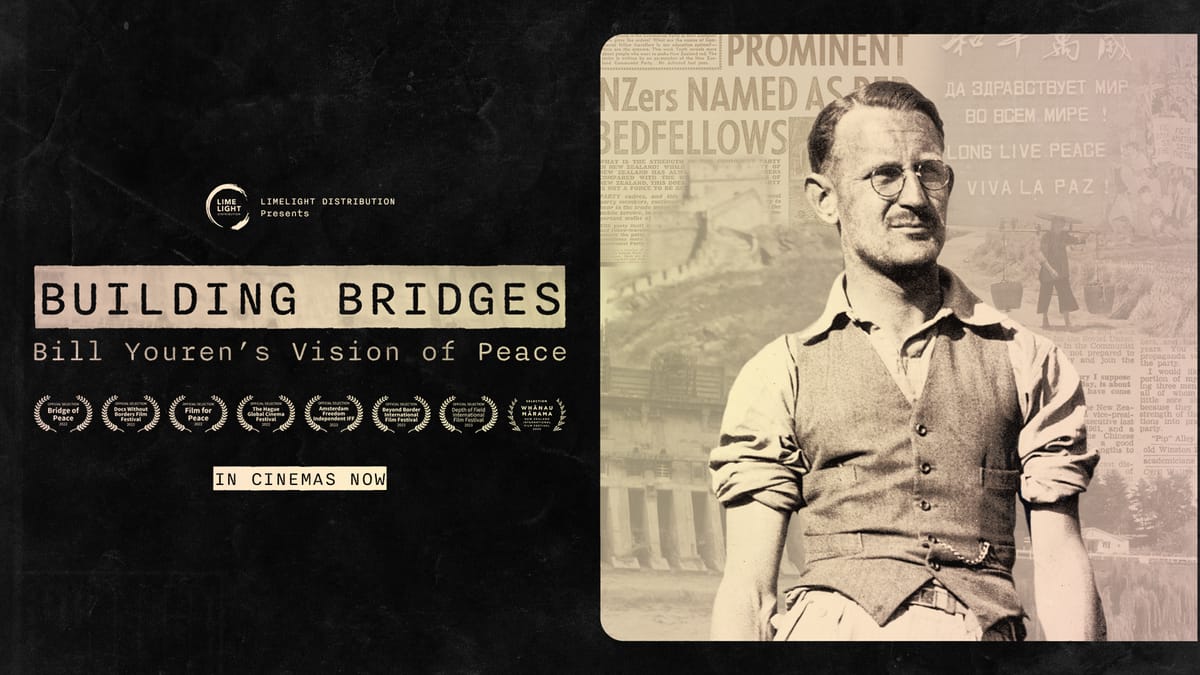
There’s a bridge in the Hawkes Bay, built over 70 years ago which, despite Cyclone Gabrielle’s recent devastation, still stands today. Constructed by Bill Youren (1910 – 1983), a farmer, lawyer and pacifist, the 55-yard long heavy-traffic bridge, suspended over an 80-foot drop, is a beautiful metaphor for his life and work.
Youren is remembered today for his humanitarian endeavours, building bridges between a conservative New Zealand in the 1950s and revolutionary China. Youren visited the country on three separate peace missions in 1952, 1956 and 1960, at a time when it would, according to Associate Professor James Beattie, have been “akin to visiting the moon.”
Associate Professor Beattie and his colleague Associate Professor Richard Bullen are writers, researchers and Associate Producers of a documentary on Youren that screened at 2023's Whānau Mārama New Zealand International Film Festival and on general cinema release. It is now available via Arovision.
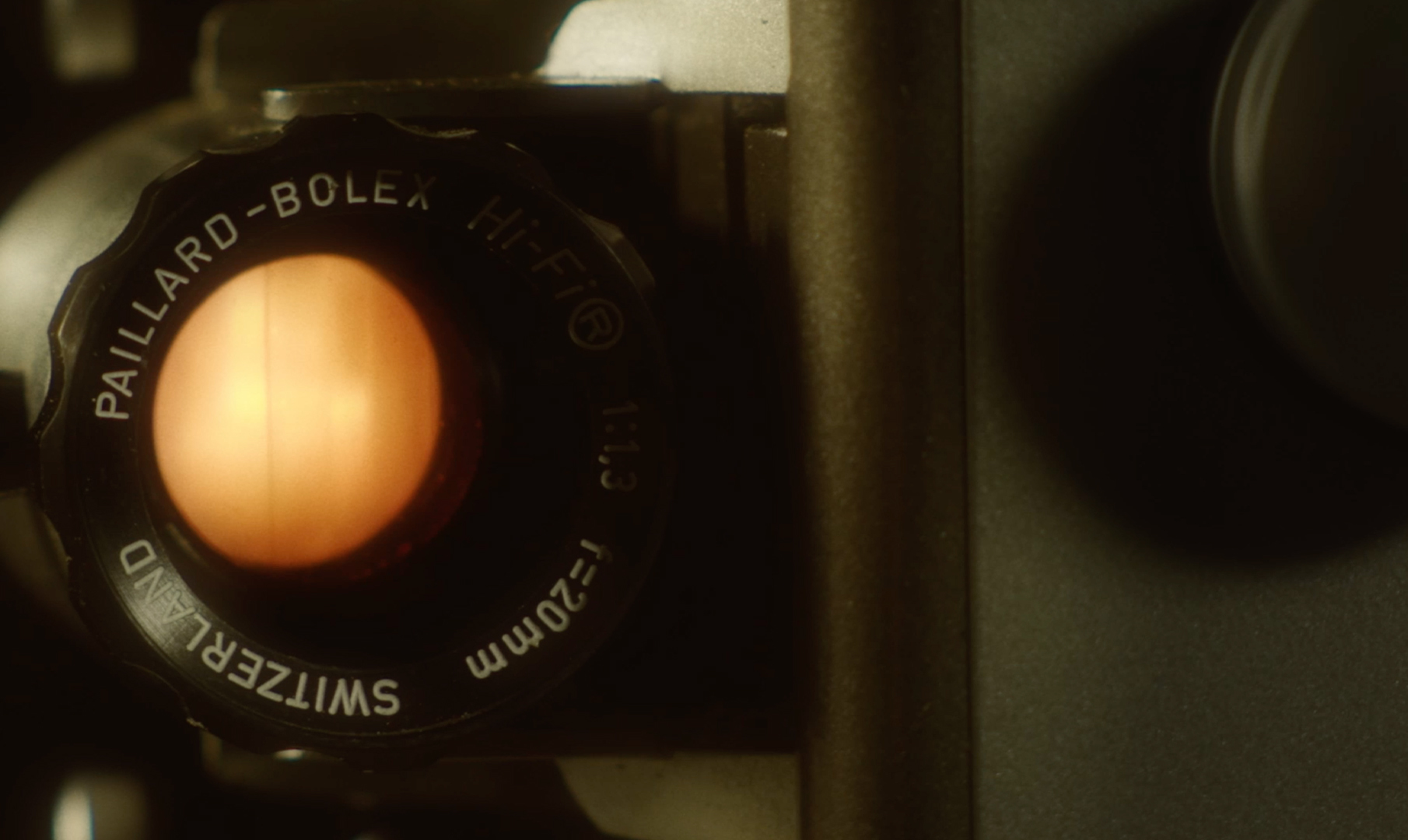
Building Bridges: Bill Youren’s Vision of Peace is a surprising and intriguing film, especially because, despite his extraordinary life, Youren “wasn’t known,” as Associate Professor Bullen notes:
“He wasn’t a name. And yet he had been incredibly involved in the support of China, particularly in the 1950s, as well as research on China.”
Youren’s political stance was unusual for a time in which the Cold War and communism were portrayed as existential threats. But although he was a fascinating historical figure, ultimately what drew the pair to the story was its deeply personal nature. “Bill was an extremely likeable person from the start,” says Associate Professor Bullen.
“He was sincere. He was intelligent. He wrote well. He talked well. He had a very, very strong moral compass and he was prepared to act on that moral compass in a way that was really brave for that period. Or any period,” says Associate Professor Bullen.
Associate Professor Beattie notes how Youren wasn’t afraid to criticise the way 1950s New Zealand reacted to the People’s Republic of China and the suspicions which loomed over Kiwis who formed relationships with the country.
“Youren was a fairly strong minded, but also very ethical operator. He didn’t mind speaking truth to authority. He was also very strongly evidence-based so his criticism was thoughtful and measured. That probably reflected his training in the law.”
The filmmaking farmer goes to China
Youren came to his role as a farmer after becoming disillusioned with the practice of law. He acquired his property known as Wai-iti, a hill-country cattle farm in the Hawkes Bay in 1935. Not long after, he purchased an 8mm camera and used it to make farming films. These now provide rare and special glimpses into rural life in New Zealand, China and other places.
“Bill seemed to carry his camera everywhere he went,” says Associate Professor Bullen. “He travelled quite a lot around New Zealand in the 1940s on various agricultural boards and also visiting family. And he went on trips overseas, not only to China, but India, Sri Lanka and Europe. There’s some 70 hours of footage that was digitised fairly early in the piece.”
The documentary’s director John Chrisstoffels, also a filmmaker, saw in the footage the potential for a powerful story, recalls Associate Professor Bullen:
“It was really the footage that struck John. Bill was an untrained filmmaker, but he was a very good filmmaker. Many of his scenes are really striking. He had fantastic taste and he went to efforts to get good shots. There’s a scene in the film where they’re driving sheep across [Bill’s] bridge and he’s climbed up the posts of the bridge to take the footage. Talk about brave! But he cared about his films to go to that sort of effort.”
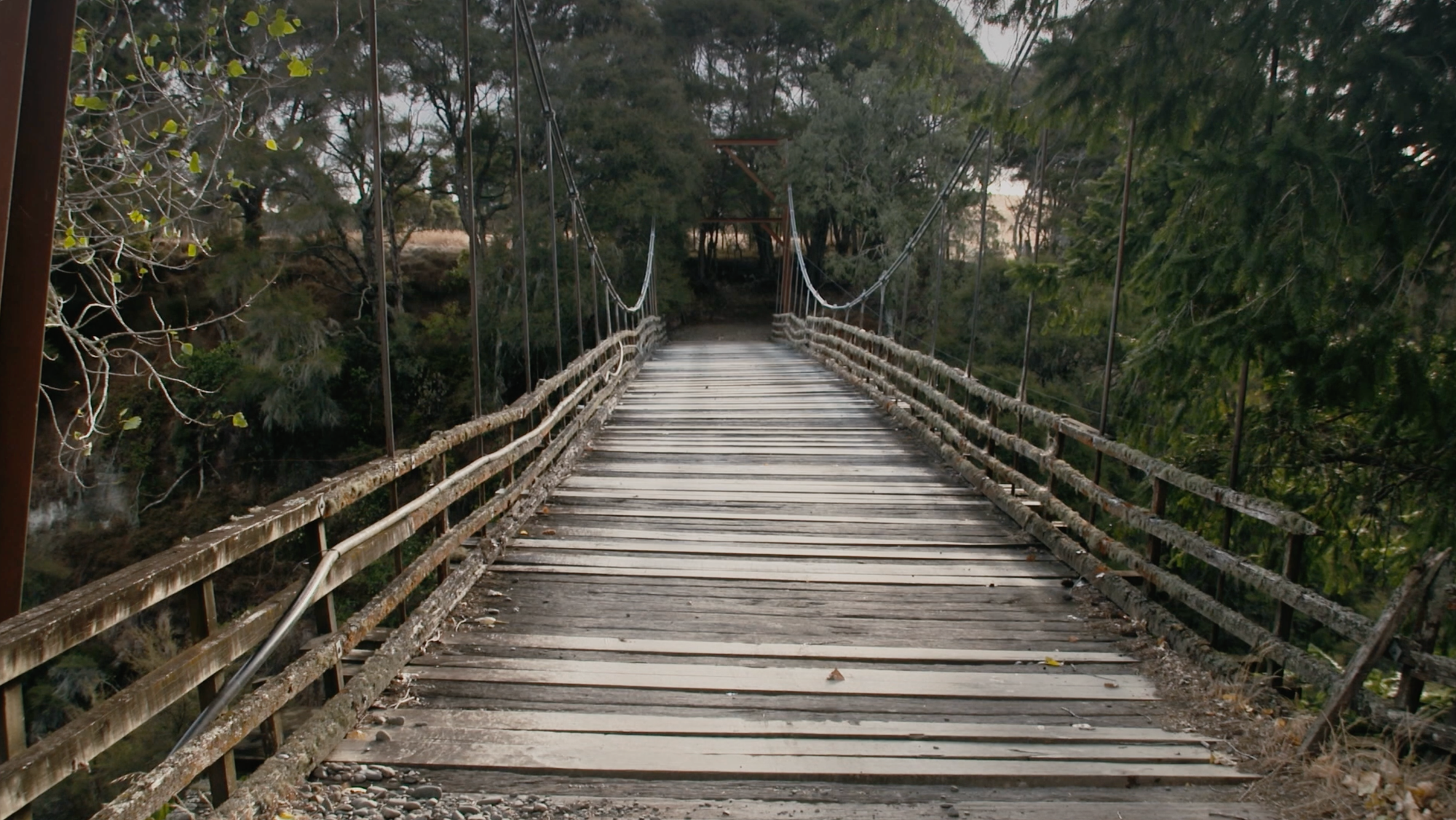
The footage from China is equally compelling and another example of Youren’s unusual perspective. Filming on the Great Wall, Associate Professor Bullen cites the way Youren has run ahead of his party, taking footage of people walking up towards him. “It might sound like quite a small thing, but Bill wasn’t even trained. His footage is really striking and each time I’ve watched the film I see more of this really extraordinary filmmaking.”
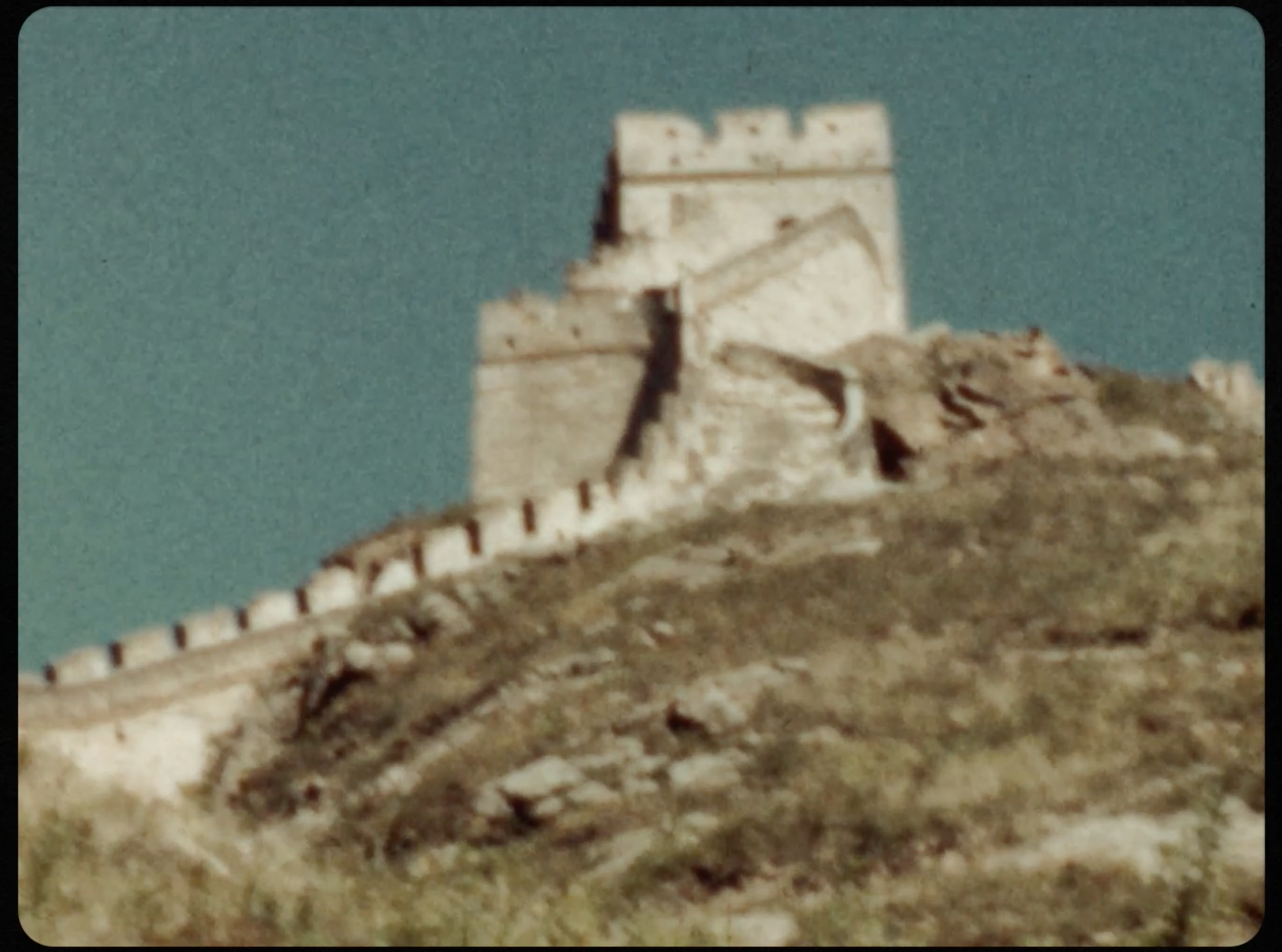
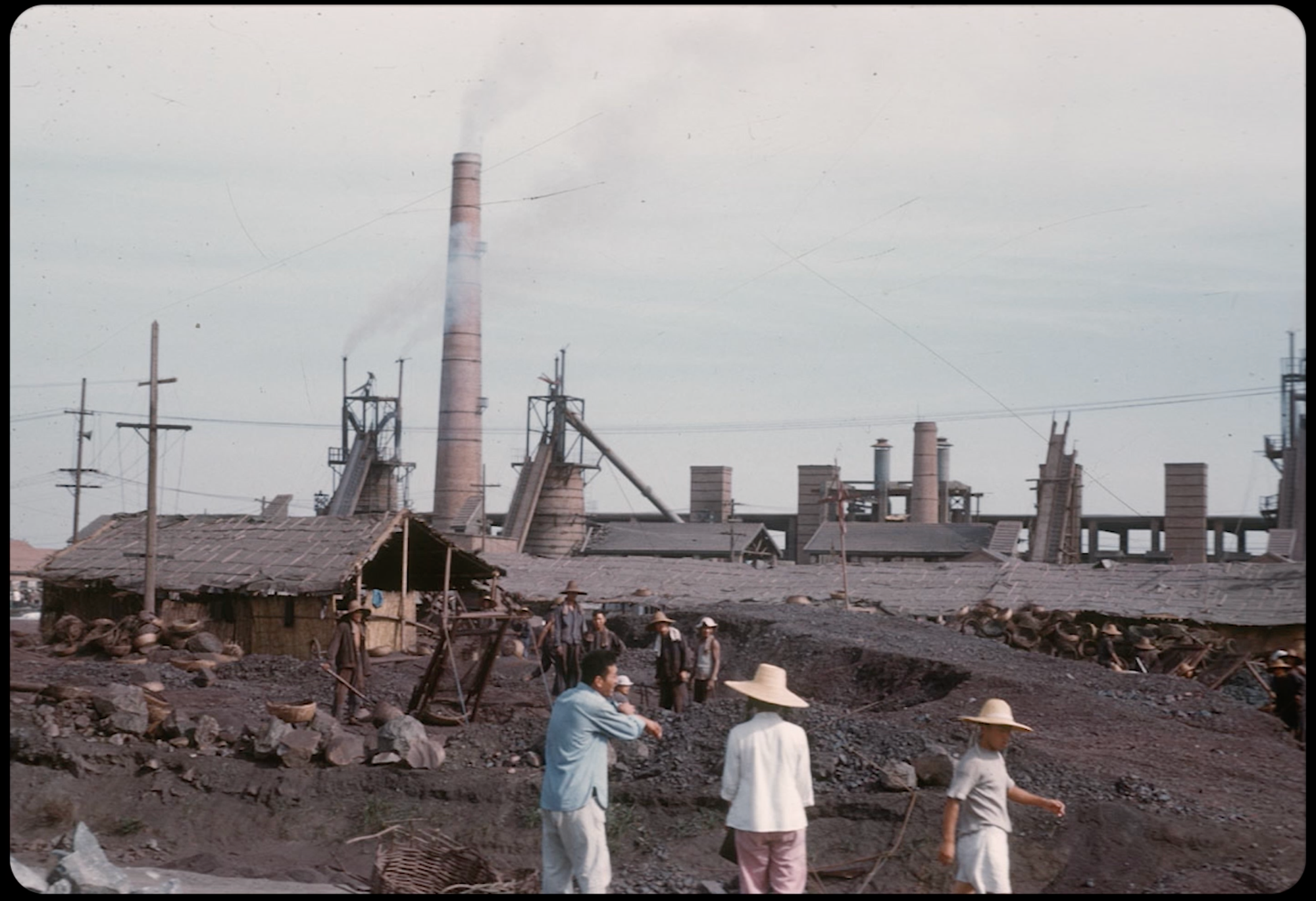
The Great Wall and a Great Leap Forward-era smelter (Stills from film supplied by Limelight Distribution)
Spotlight on person-to-person stories
The process of making any film is long and at times arduous and the Building Bridges documentary was no different. But both academics were excited by the project because of the ways in which it could extend their research. “I found it really interesting to be able to reach a wider audience,” says Associate Professor Beattie. “As an academic I write books and do exhibitions and this was for me, at least, a different medium of achieving a wider coverage of both research and message.”
Youren’s life serves as a shining example of how barriers between us can be surpassed through cultural understanding and respect. “Often these stories of country to country relations are told at a national or an official level”, remarks Associate Professor Bullen.
“Bill’s story reminds us of is person-to-person relations have always been, and continue to be a key part of relations between countries. Bill was attempting to balance up that picture of China and he was doing it as an individual. That’s a key takeaway of his story.”
* Quotes in this article may have been edited for clarity and brevity. The views expressed in this article do not necessarily represent the views of the Centres of Asia-Pacific Excellence.
Watch Building Bridges: Bill Youren's Vision of Peace




